Q
how much is byd seal in malaysia
The BYD SEAL is currently priced between approximately RM170,000 and RM200,000 in Malaysia, depending on the trim level. Exact pricing may vary based on optional extras or ongoing promotions. This all-electric sedan has been turning heads with its impressive range – over 500km on a single charge – and blistering acceleration, clocking 0-100km/h in just 3.8 seconds. It also comes equipped with BYD's Blade Battery technology, which has passed rigorous safety tests.
For Malaysian buyers, the SEAL's pricing positions it competitively in the EV market, especially when factoring in the government's tax exemption for electric vehicles, which significantly reduces the overall cost of ownership. It's also worth noting that Malaysia's EV charging infrastructure is expanding rapidly, with more charging stations popping up in major cities, making daily use of electric vehicles increasingly convenient.
If you're interested, we recommend reaching out directly to BYD's authorized dealers in Malaysia for the latest quotes and to schedule a test drive. You can also check the official website of the Malaysian Automotive Institute (MAI) for detailed information on the latest EV subsidy policies.
Special Disclaimer: This content is published by users and does not represent the views or position of PCauto.
Related Q&A
Q
What is the most sold electric car in the world 2024?
As of 2024, the world's best-selling electric vehicle is the Tesla Model Y. This ride has won over consumers globally, thanks to its impressive range, cutting-edge autonomous driving tech, and that ever-expanding Supercharger network. It's been particularly killing it in North America, Europe, and Asia. For Malaysian buyers, the Model Y might just be a top contender too. Tesla's been steadily beefing up its presence in Southeast Asia, and that includes rolling out Superchargers in Malaysia. Sure, the local EV scene is still growing, but government support for new energy vehicles—think tax breaks and charging infrastructure pushes—is really helping to drive adoption.
But Tesla isn't the only player in town. Brands like BYD, Hyundai, and Nissan also hold significant chunks of the global EV market. Take the BYD Atto 3 (that's the Yuan PLUS) and Hyundai Ioniq 5, for example—they're gaining traction with their solid value for money and fresh, innovative designs.
For Malaysian consumers eyeing an EV, it pays to weigh factors like range, how easy it is to charge up, after-sales service, and local market support. With tech advancing and policies backing things up, the Malaysian EV market is only going to get more diverse in the years ahead.
Q
What is BYD ranked in the world in 2024?
BYD has solidified its position among the world's top automakers in 2024, with standout performance in the new energy vehicle sector. Industry data shows their sales have cracked the global top three, cementing their status as one of the most influential EV brands around. The secret to BYD's success? Their robust vertical integration – they develop everything in-house, from batteries and motors to electronic control systems. On top of that, they're aggressively expanding overseas, with Southeast Asia (Malaysia included) being a key strategic focus.
For Malaysian buyers, models like the Atto 3 are steadily gaining traction thanks to their strong value proposition and impressive range. Local assembly plans are only set to boost their competitiveness further. A big selling point? BYD's Blade Battery technology, which leads the industry in safety and energy density – a crucial advantage in Malaysia's hot climate.
As the global shift to electrification accelerates, BYD looks primed to grow its market share and roll out more innovative products. If you're a Malaysian considering an EV, make sure to weigh factors like charging infrastructure, warranty policies, and local after-sales support before making your decision.
Q
What is the best-selling EV in China 2024?
The best-selling electric vehicle in China's market for 2024 is the BYD Song PLUS EV. This model has won widespread favor among consumers thanks to its impressive range, spacious interior, and BYD's accumulated technological expertise in the EV sector. As a leader in China's EV market, BYD boasts a product lineup spanning from entry-level to high-end models, catering to the diverse needs of different consumers. The success of the Song PLUS EV also reflects Chinese consumers' preference for family-friendly electric SUVs.
For Malaysian consumers, while BYD might not enjoy the same level of brand recognition as Japanese or German marques in the local market, the technological prowess and cost-effectiveness advantages of Chinese brands like BYD are becoming increasingly evident as EVs gain global traction. It's plausible that they could carve out a significant presence in Malaysia in the years to come.
The development of electric vehicles doesn't solely rely on the performance of the cars themselves; the improvement of charging infrastructure is also a crucial factor driving their widespread adoption. The Malaysian government has been actively pushing for the implementation of EV-related policies in recent years, including the construction of charging stations and vehicle purchase subsidies. These initiatives will create favorable conditions for the promotion of electric vehicles in Malaysia.
Q
How many cars has BYD sold in China in 2024?
I haven't been able to track down specific, standalone figures for BYD's sales exclusively in China for 2024 just yet. However, what we do know is that BYD's global sales hit a whopping 4.27 million units last year, with overseas markets contributing 417,204 units. Doing a little back-of-the-envelope math, that roughly puts their China sales at around 3.8528 million units (4.27 million -41.7204 million=3.852796 million).
2024 was an absolutely stellar year for BYD. They didn't just dominate the sales charts in China; they also clinched the title of the world's top-selling new energy vehicle manufacturer. A big part of their success comes down to their multi-brand strategy – think "BYD," "Fang Cheng Bao," "Denza," and "Yangwang" – each catering to different market segments and needs. On top of that, continuous technological innovation, like their "e-platform 3.0 Evo" and "5th Generation DM Technology," has been a major driver propelling those sales numbers ever higher.
Q
How much is the BYD Seal in 2024?
The 2024 BYD Seal comes in multiple variants with different price tags. Specifically, the BYD Seal Dynamic EV is priced at RM 163,800, the BYD Seal Premium (Extended Range) goes for RM 179,800, and the top-of-the-line BYD Seal Performance AWD hits RM 199,800. All these are pure electric D-segment sedans, boasting solid range and equipment levels. Let's talk dimensions: they stretch 4,800mm in length, 1,875mm in width, 1,460mm in height, with a 2,920mm wheelbase. There's seating for five, and a 400-liter trunk to boot. Performance-wise, the variants differ quite a bit. The Seal Performance AWD, for example, rockets from 0-100km/h in a claimed 3.8 seconds, while the Seal Dynamic EV does the same sprint in a stated 7.5 seconds. So, buyers can pick the one that best fits their needs.
Q
What Segment Does BYD Seal Belong to?
The BYD Seal belongs to the D-segment cars. D-segment cars are typically mid to large-sized vehicles, well-known for striking a balance between space, comfort, and performance.
The BYD Seal has a body length of 4,800 millimeters, a width of 1,875 millimeters, and a wheelbase of 2,920 millimeters, offering passengers a relatively spacious interior. The trunk space is also quite decent. Such specification makes it suitable for comfortable long - distance trips and can meet the sufficient space requirements for daily use. Moreover, in terms of performance, the Seal provides different versions with various power outputs. It can provide a smooth daily driving experience and also offer a more exciting high - performance driving feel. Whether for family users or individual users who desire more space and better performance in their vehicles, the D - segment BYD Seal is an appealing choice.
Q
What's the Reslae Value of BYD Seal?
The BYD Seal, a relatively new electric vehicle in the Malaysian market, currently lacks complete data on its resale value, but general resale value for EVs can provide some references. Due to rapid advancements in EV technology, the resale value of electric vehicles typically declines slightly faster than that of comparable internal combustion engine (ICE) vehicles in the first three years—around 50%-60% for EVs versus 60%-70% for ICE cars.
Key factors influencing resale value include battery health (BYD offers an 8-year/160,000 km battery warranty), growing brand recognition (BYD has shown strong performance in recent years), and the maturity of EV infrastructure (such as charging network development). Compared to similar ICE vehicles, the BYD Seal's extended battery warranty and lower operating costs (electricity being significantly cheaper than fuel) may help mitigate depreciation.
For prospective buyers, it is advisable to consider certified pre-owned programs and maintain complete service records to preserve resale value. As EV adoption increases, more definitive resale value data will be provided.
Q
What's the Displacement of BYD Seal?
The BYD Seal is an electric vehicle, so it doesn't use the traditional "CC" (cubic centimeters, used to measure internal combustion engine displacement) as a metric. It provides different versions, such as the Dynamic EV, Premium (Extended Range), and Performance AWD. In terms of the powertrain, the Dynamic EV version has a total motor power of 150kW, a maximum horsepower of 204PS, and a total torque of 310N·m. The Premium (Extended Range) version has a total motor power of 230kW, a maximum horsepower of 308PS, and a torque of 360N·m. The Performance AWD version is more powerful, with a combined system power of 390kW, a combined horsepower of 523PS, and a combined torque of 670N·m. These motors can provide efficient and strong power output, meeting different consumers' needs for speed, range, etc. Moreover, the all - electric drive also complies with the current trend of environmental protection and energy conservation.
Q
What's the PCD Size of BYD Seal?
The PCD (Pitch Circle Diameter) of the BYD Seal is 5×114.3, which means the wheel hub has 5 bolt holes evenly distributed on a circle with a diameter of 114.3 millimeters, matching the standard used by many mainstream Japanese vehicles (such as Honda and Toyota). So, it's easy to find compatible wheel hub options for modification or replacement in the Malaysian market.
Beyond PCD, wheel modifications also require attention to other parameters, including the hub bore (recommended to use OEM-concentric hub rings for precise fitting), offset (ET value), and wheel width to avoid affecting suspension geometry or causing friction. For wheel upgrades, it is advisable to choose EV-rated products that can accommodate the Seal's battery weight and prioritize purchasing through BYD-certified channels to ensure safety and compatibility.
Q
Does BYD Seal Support Apple Carplay?
The BYD Seal doesn't have the Apple CarPlay feature. Apple CarPlay is a system developed by Apple Inc., which allows iPhone users to connect their devices to the in-vehicle infotainment system. Although some car models in the market support this feature, the BYD Seal isn't one of them.
However, the BYD Seal has its own advanced infotainment system. It's equipped with a 15.6 - inch intelligent rotating touchscreen, which can provide a wide range of entertainment and vehicle control functions. This car also adopts a comprehensive set of standard configurations, such as various safety systems, comfortable seats with multiple adjustment options, and a high - quality sound system with 12 Dynaudio speakers. Even though the Seal doesn't have Apple CarPlay, its own infotainment capabilities can still bring users a convenient and pleasant driving experience.
Popular Cars
Model Year
Car Compare
Car Photo
Latest Q&A
Q
Do I need an alignment after rotation?
Whether a four-wheel alignment is needed after tire replacement depends on the actual condition of the vehicle. If only the tires are replaced and the vehicle has been driving normally without deviation, steering wheel vibration, or uneven tire wear, a four-wheel alignment is usually not required immediately, but wheel balancing must be performed to ensure stability when the wheels rotate at high speeds. However, if problems such as directional deviation, reduced steering precision, misaligned steering wheel, or abnormal tire wear (e.g., one-sided wear) occur after tire replacement, four-wheel alignment is necessary to adjust the geometric parameters of the suspension system (including caster angle, front wheel camber, etc.), thereby restoring the vehicle's straight-line driving stability and uniform tire contact with the road. Moreover, if chassis component repairs (such as suspension or steering system) are involved during tire replacement or the vehicle has been in a collision, four-wheel alignment becomes an essential step, as it can effectively reduce abnormal tire wear, improve handling safety, and lower fuel consumption. It is recommended to check the alignment parameters regularly every 20,000 kilometers or once a year. If you frequently encounter rough road conditions (such as curbs or speed bumps) during daily driving, the inspection interval should be shortened accordingly. Professional technicians can measure the data using specialized equipment and compare it with the manufacturer's specifications to determine whether adjustments are needed.
Q
Is it okay to rotate tires every 10,000 km?
Rotating tires every 10,000 kilometers is a reasonable and necessary maintenance measure, especially for fuel vehicles, as this frequency can effectively balance the wear difference between front and rear tires. Tire rotation involves regularly adjusting the installation positions of tires (e.g., moving front tires to the rear), which ensures more uniform wear across all tires, thereby extending the overall service life by approximately 20%-30%. For fuel vehicles, it is recommended to rotate tires every 10,000 kilometers, while for new energy vehicles, due to their greater weight and stronger torque output, the interval should be reduced to 8,000 kilometers. During rotation, the cross-rotation method should be employed (i.e., moving front tires to the opposite rear positions), and tire pressure should be checked simultaneously to ensure it meets the specified standards (2.3-2.5 bar for fuel vehicles, with an additional 0.2 bar for new energy vehicles). It is important to note that if a tire exhibits abnormal unilateral wear, bulges, or tread depth below 1.6 millimeters, simple rotation is not recommended and the tire should be replaced immediately. Regular monthly tire pressure checks and removal of debris from treads can further enhance tire performance and safety.
Q
What happens if you don't rotate tires?
If tire rotation is not performed regularly, it will lead to uneven tire wear, which in turn causes multiple problems. For front-wheel-drive vehicles, the front tires bear both driving and steering functions, so their wear rate is significantly faster than that of the rear tires; for rear-wheel-drive vehicles, since power is concentrated on the rear tires, the rear tires wear more noticeably. Long-term failure to rotate tires will shorten the overall tire life by 20%-40%—the front tires may be scrapped prematurely while the rear tires remain relatively new, resulting in resource waste. In addition, uneven wear reduces traction, particularly on wet surfaces, which can easily lead to skidding or a 10%-15% increase in braking distance, thereby elevating driving risks. Irregular wear also exacerbates tire noise and increases fuel consumption by 0.3-0.8 liters per 100 kilometers due to uneven rolling resistance. It is recommended to rotate tires every 10,000 to 15,000 kilometers. For front-wheel-drive vehicles, the cross-rotation method should be employed (left front to right rear, right front to left rear), while for rear-wheel-drive vehicles, the rear tires need to be crossed to the front. After rotation, tire pressure (the standard value typically ranges from 2.3 to 2.6 bar) should be verified and wheel balancing performed to prevent high-speed vibrations. If the tires exhibit irregular wear patterns or the tread depth falls below 1.6 mm, they should be replaced immediately. Regular tire rotation not only prolongs tire lifespan but also enhances fuel efficiency and driving safety. The cost of a single rotation is approximately 50 to 100 ringgit, substantially lower than the expense of premature tire replacement.
Q
Is it good to rotate car tires?
Tire rotation is an important maintenance measure to ensure even tire wear and extend service life. It is recommended to perform it every 5,000 to 10,000 kilometers or when uneven wear is detected. For front-wheel drive vehicles, the front tires wear faster as they handle steering and braking tasks, so they need to be cross-rotated with the rear tires (left front to right rear, right front to left rear). For rear-wheel drive vehicles, the rear tires should be diagonally swapped with the front tires to balance the wear of the drive wheels. If the tires have a directional tread pattern or asymmetric design, the rotation direction must be maintained, and only front-to-rear swaps on the same side are allowed to avoid affecting handling on wet and slippery roads. After rotation, the tire pressure should be adjusted to the standard for the corresponding wheel position, and it is recommended to perform dynamic balancing and four-wheel alignment simultaneously to optimize driving stability. Note that snow tires or studded tires cannot be rotated, and tires with different front and rear sizes can only be swapped left and right. Regular rotation can reduce abnormal wear (such as uneven wear or wavy patterns), improve grip and driving quietness, reduce safety hazards caused by tire problems, and save replacement costs in the long run. The specific operation should be based on the vehicle manual. If there is a lack of guidance, the cross-rotation method for bias-ply tires or the same-side rotation method for radial tires can be prioritized.
Q
How often should car tyres be rotated?
The replacement cycle of car tires should be determined by comprehensively considering factors such as service life, mileage, driving habits, and environmental conditions. Generally, it is recommended to replace them every 3 to 5 years or after 60,000 to 80,000 kilometers of driving, whichever comes first. As rubber products, tires deteriorate over time. Even if the mileage threshold hasn't been reached, immediate replacement is necessary when sidewall cracks, bulges appear, or tread depth falls below 1.6 mm (verifiable with a coin test) to ensure safety. Due to their heavier weight and stronger torque output, new energy vehicles experience accelerated tire wear. It is advisable to shorten the inspection interval to every six months, with urban commuting replacement mileage typically ranging from 42,000 to 56,000 kilometers. Regular tire rotation helps distribute wear evenly. For front-wheel-drive vehicles, front-to-rear rotation every 8,000 to 10,000 kilometers is recommended, while for new energy vehicles with higher front axle loads, this interval can be reduced to 6,000 to 8,000 kilometers. Additionally, maintaining cold tire pressure at 2.3 to 2.5 bar (add 0.2 bar for new energy vehicles) and avoiding aggressive maneuvers like rapid acceleration and hard braking can extend tire lifespan by 15% to 20%. Tires exceeding 6 years from their production date (identifiable via the DOT code on the sidewall) should be replaced regardless of apparent condition.
View MoreRelated News

2025 BYD Seal Coming to Malaysia with DiSus-C Adaptive Suspension
JohnAug 13, 2025
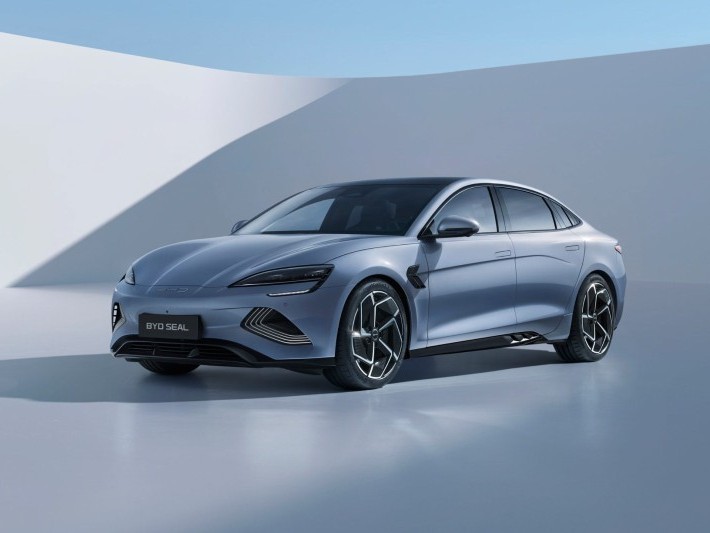
BYD Seal interior design revealed: A fusion of modern technology and luxury
RobertJul 15, 2025
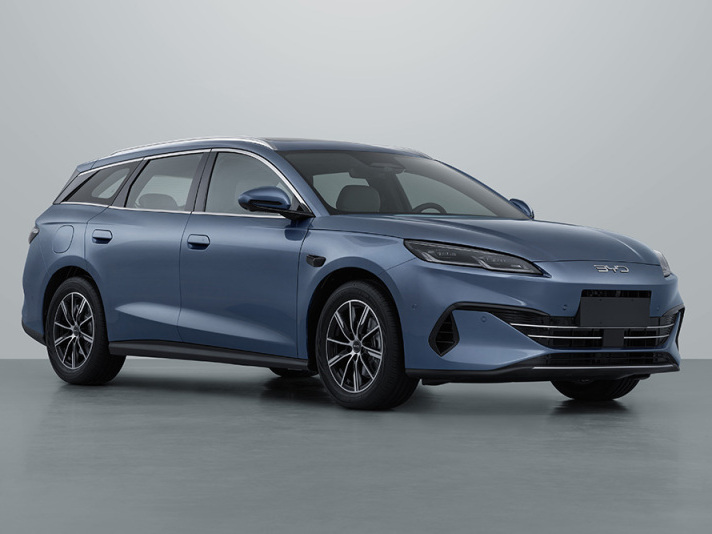
Photos of the BYD Seal 06 Touring Edition Reveal the Brand's Entry into a New Niche Market
JamesMar 24, 2025
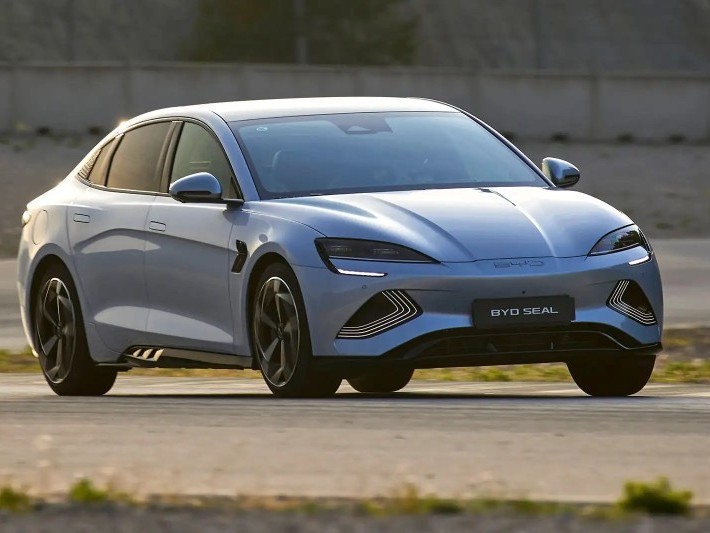
BYD Wins Japan's Annual EV Award Again with Seal
MichaelMar 6, 2025
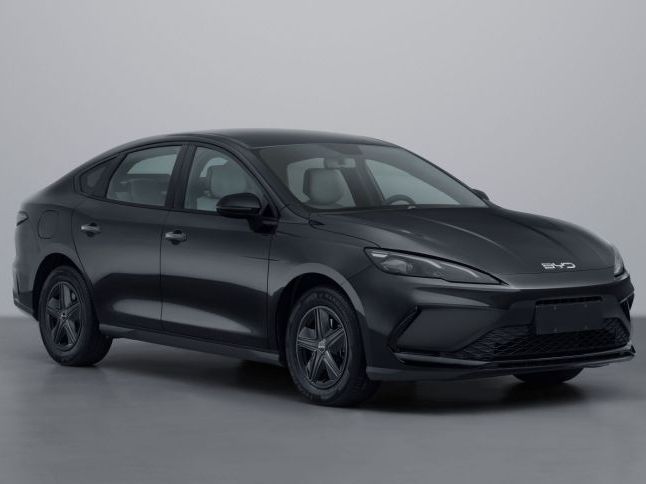
BYD Seal 05 DM-i Declaration Image Revealed: Fifth Generation DM Technology, 1.5L Hybrid System!
Kevin WongDec 10, 2024
View More


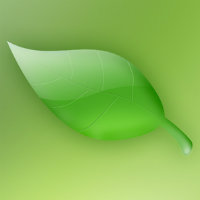
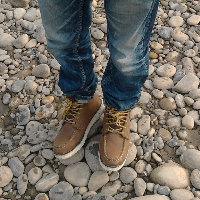








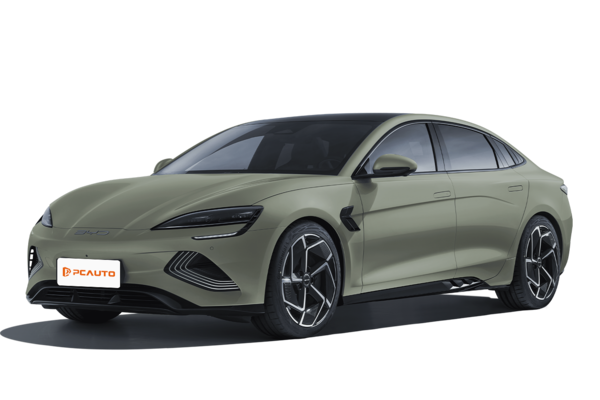
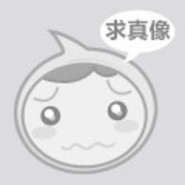



Pros
Cons